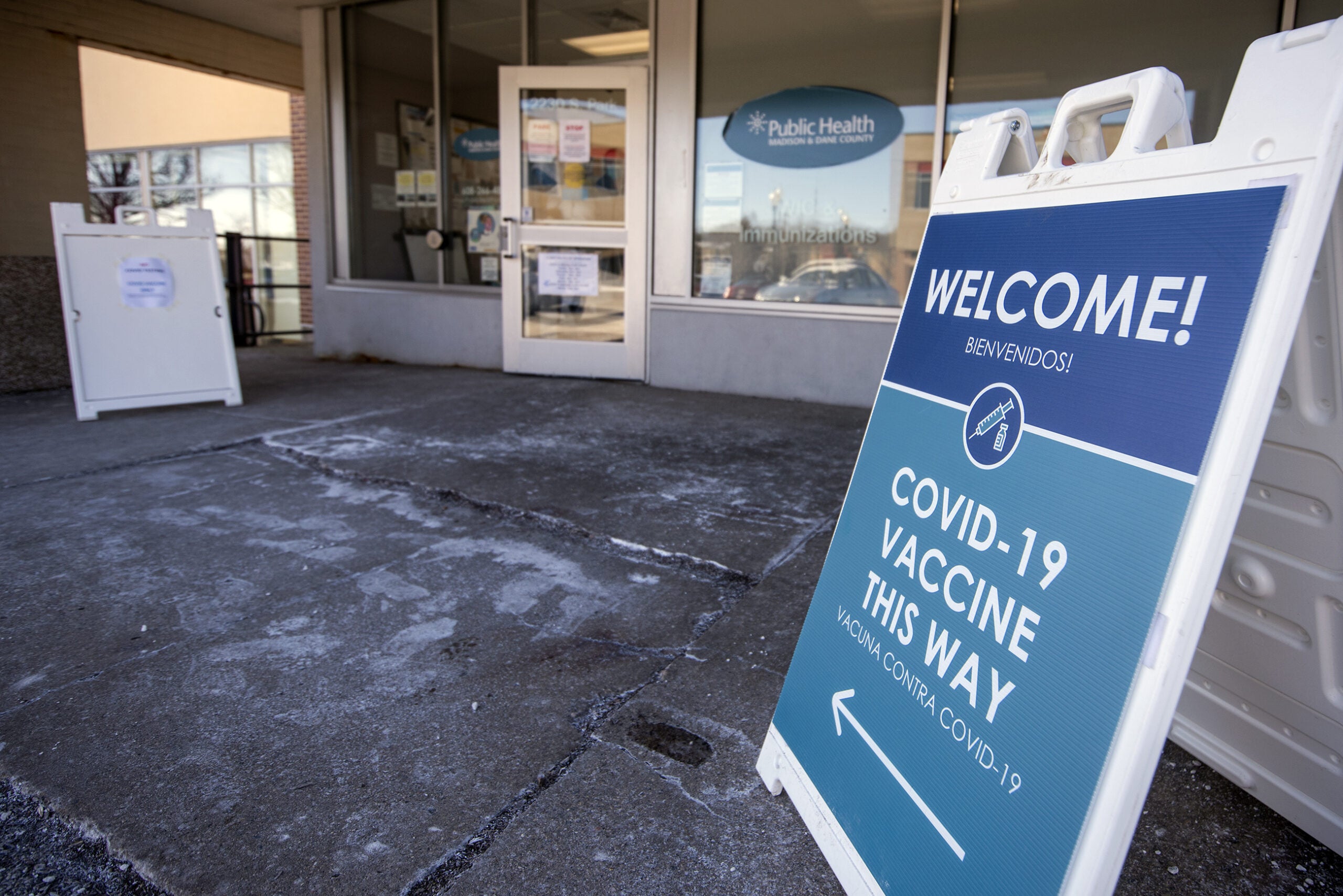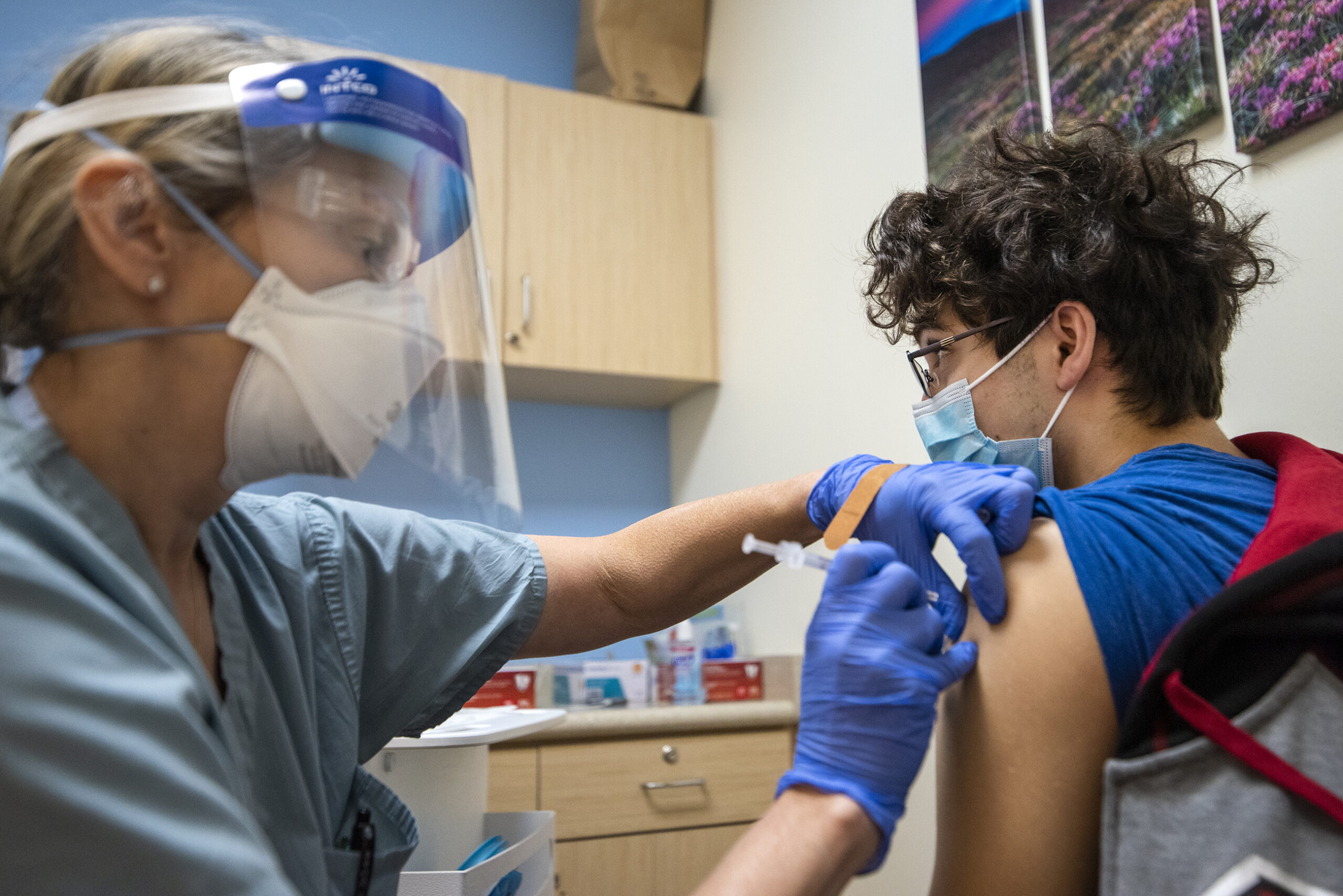Booster shots of the COVID-19 vaccine are now available for kids ages 12 and up, as well as for immunocompromised kids ages 5 to 11.
The Food and Drug Administration authorized the boosters for kids who are at least five months out from their second vaccine dose last week, and the state Department of Health Services gave local providers the green light to start administering boosters on Friday evening.
Some pharmacies and county vaccination sites opened up slots over the weekend, but for other families, kids and teens’ third shot had to wait until Monday.
News with a little more humanity
WPR’s “Wisconsin Today” newsletter keeps you connected to the state you love without feeling overwhelmed. No paywall. No agenda. No corporate filter.
Mina Luyet, a 16-year-old high schooler, got her third dose on Monday afternoon at a county public health clinic in Madison.
“It can’t hurt,” she said. “It’s not a big deal.”

The clinic also saw a steady trickle of people — kids and adults alike — coming in for their first or second dose.
Sarah Hughes, vaccine deputy at Public Health Madison Dane County, said that while vaccine demand is down from the flood of people who came in when it was first authorized for adults, and then for each age group of kids, there has still been a consistent flow of people starting their vaccine sequence.
“We are continuing to see high demand for vaccines,” she said. “Anecdotally, and just by the numbers that we’re seeing with public health, with the holidays and what we’re seeing with omicron and case numbers rising, has definitely maybe caused some people to rethink or to add some more urgency to getting vaccinated or boosted.”
Maddie Ballweg, a senior at Madison Memorial High School, said most of her friends were also getting their booster shots this week. Her school was virtual last week after concerns over the rapidly spreading omicron variant made Wisconsin’s two largest school districts rethink an in-person return from the holiday break.
“I just think it’s kind of necessary for society,” she said. “I just feel like it’s the right thing to do, and I’m not really getting harmed, so I’m just doing my part.”
When Luyet, the 16-year-old, got her second dose, her family was excited about all the things it would enable them to do — especially since it was over the summer. With the booster, which comes amid rising cases, their attitude is a little different.
“In June, when we got her second shot, we were just super pumped and excited, because it meant a lot more normalcy,” said her mom, Ana Luyet. “This time, it’s kind of like, ugh, we’re just going to do it because we need to do it, maybe it’ll keep us from getting sick.”
Mina agreed.

“It doesn’t mean freedom,” she chimed in.
Hughes, with the health department, said she hears from a lot of people who are frustrated by the need for additional shots and continuing precautions, like masking and social distancing.
“I know this feels like it might be a never-ending process, but I think we’re doing the best we can with the information we have, and we know that getting a booster gives us the best protection right now against COVID,” she said. “It takes multiple doses of the polio vaccine or multiple doses of the tetanus vaccine in order to get us to a place where our bodies can fight off those diseases as well, so I like to remind people that this is not different.”
The process for getting a booster shot is very similar to other doses of the COVID-19 vaccine. They are offered at pharmacies, hospitals and doctor’s offices, and sites run by local public health departments. Information about where to find a vaccine is available on the Department of Health Services’ website.
Wisconsin Public Radio, © Copyright 2026, Board of Regents of the University of Wisconsin System and Wisconsin Educational Communications Board.




